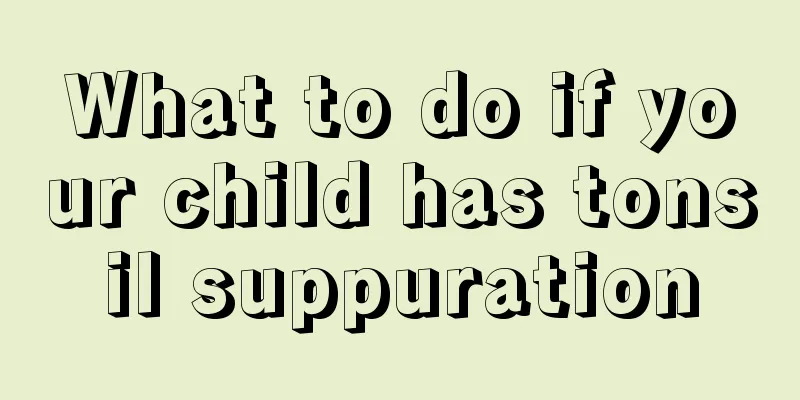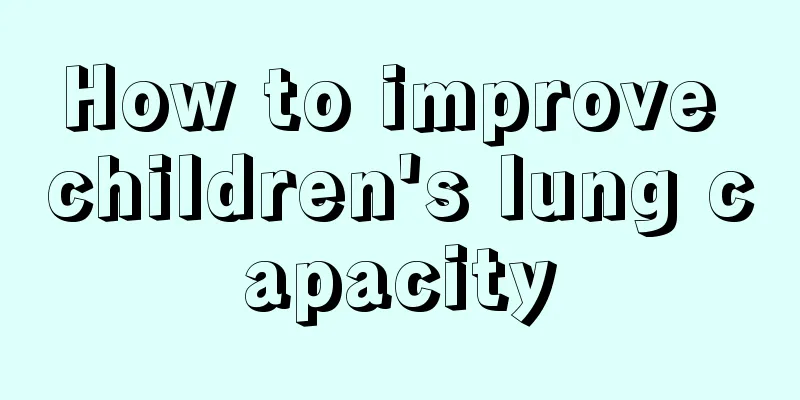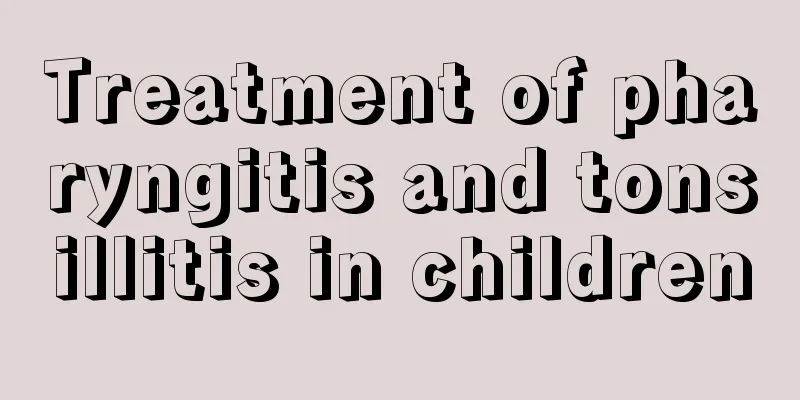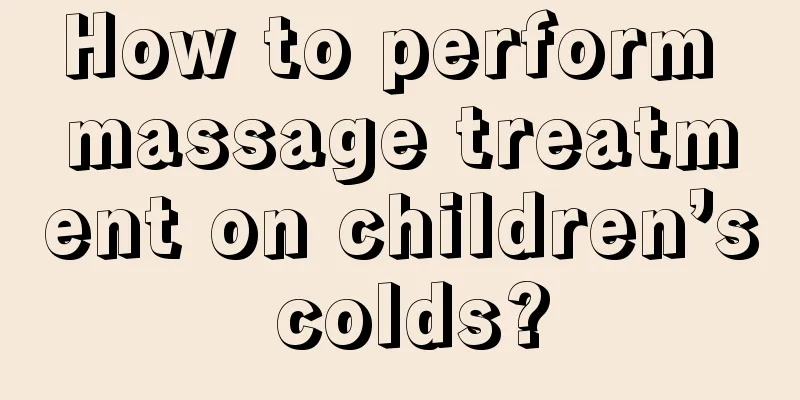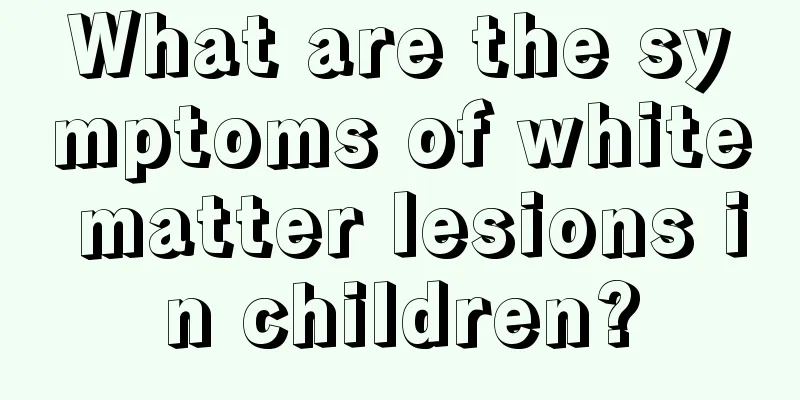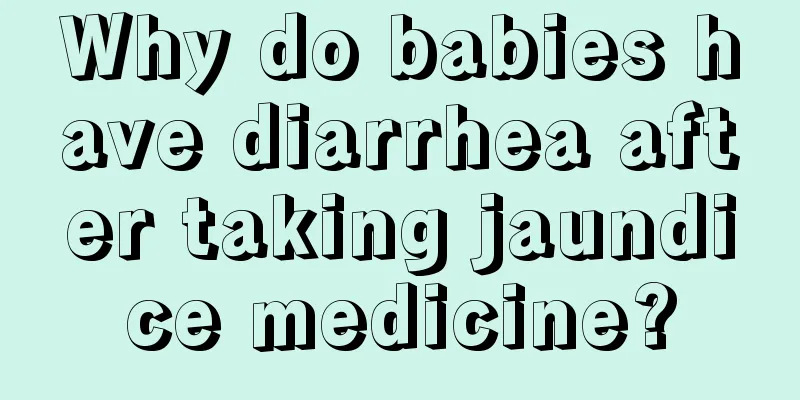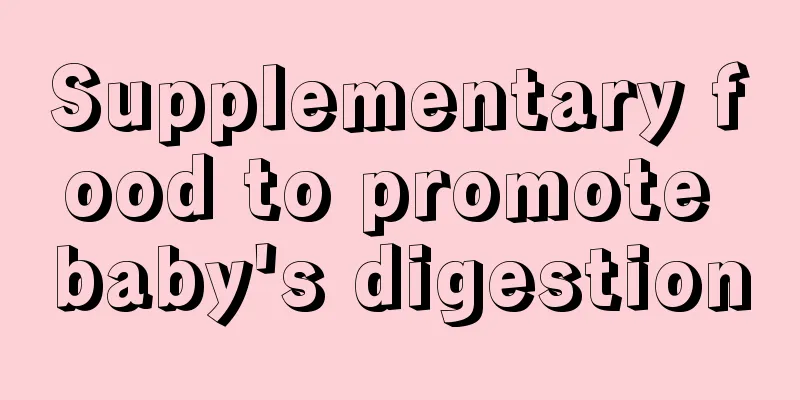The child has repeated fevers for unknown reasons
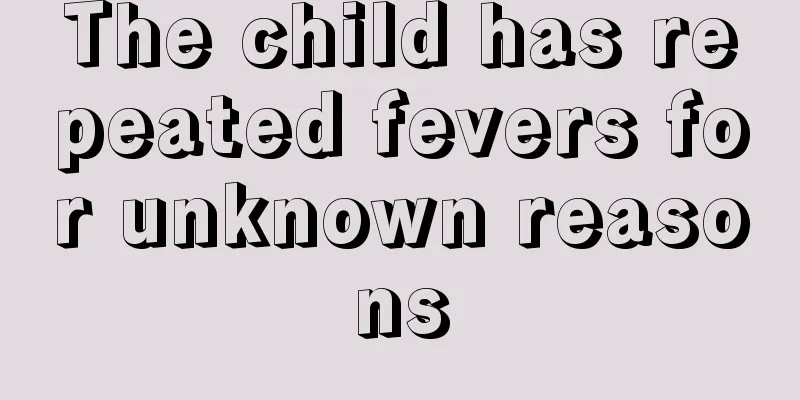
|
In life, when children have repeated fevers for unknown reasons, it may be due to cold symptoms caused by decreased body resistance, or it may be due to getting angry and damp heat. At this time, we can use physical cooling methods to treat it and take medication to control the disease. When a child has a fever, you can use a towel soaked in warm water to wipe the body and apply a cooling patch to reduce the temperature. What to do if your child has a recurring fever Fever is a relatively common disease. The treatment of fever can be divided into physical cooling and drug treatment. 1. Below 38℃ - Physical cooling If the child's body temperature does not exceed 38 degrees Celsius, there is no need to use medication, but physical therapy can be used. Common physical therapies include drinking more boiled water, taking warm baths, and applying cooling patches, which can effectively lower body temperature. 2.38℃~39℃-drug treatment At this time, parents need to pay attention to the baby's physical signs at all times so that timely treatment can be provided. For children, if the body temperature is higher than 38°C, medication is required. Western medicines include Tylenol, Motrin, etc., and Chinese medicines include antelope horn, Bupleurum, etc. When it comes to drug treatment, you must not be blind. It is recommended to feed the baby after consulting a doctor. 3. Over 39℃ - Doctor's advice on medication When the child's body temperature is higher than 39 degrees Celsius, it is in the high fever stage and requires Western medicine treatment. Ibuprofen and paracetamol antipyretics can be used appropriately. Parents must note that babies must take medication under the professional advice of a doctor, and must pay special attention to the dosage. In addition, the baby must be sent to the hospital for treatment in a timely manner. When should a child be taken to the doctor if he or she has a recurring fever? 1. Observe your mental state Parents need to always pay attention to their baby's mental state and remain vigilant. (1) If the baby has a high fever but is in good spirits, and can still play after taking medicine to reduce the fever, and is not much different from his usual state, then this indicates that the baby's condition is not serious and he can rest and recuperate at home. (2) If the baby appears listless, tired, or apathetic, it indicates that the baby's condition is more serious and parents should take the baby to the hospital immediately. 2. Observe the abdomen and stool If the baby's stomach hurts and does not want to be massaged, it means that the baby is likely suffering from acute abdomen. If there is some pus and blood in the stool, it means the baby has dysentery. Parents need to note that if the above conditions occur, they need to take their children to the hospital immediately for treatment. 3. Observe the complexion If the baby's complexion is no different from usual or there is flushing, then you can rest assured to recuperate at home. If the face is dull, yellow, or blue, and the eyes are lifeless and dazed, then the condition is serious and the person needs to be sent to the hospital immediately. 4. Observe the skin for rashes If you have a rash on your body, it means you are allergic to the medicine or you have an infectious disease. Parents also need to observe whether their children's bodies turn purple or cold. If so, it indicates circulatory failure. All of the above situations require medical attention. 5. Observe whether vomiting occurs If there is severe projectile vomiting, it indicates that the patient has a skull lesion and needs to be sent to a doctor. |
<<: Why do children not absorb food?
>>: What causes mouth ulcers in children?
Recommend
Can simple purpura in children be cured?
The reason why many parents nowadays do not like ...
What diseases are related to babies' constant coughing
When a baby keeps coughing, parents will be very ...
What can primary school students eat for breakfast to nourish their brains?
Nutrition and health experts have found that some...
What should I do if my newborn baby has high jaundice?
We don’t know how to take care of newborn babies,...
The harm of picky eating in children
Each type of food has its own irreplaceable nutri...
What is the height standard for six-year-old children?
We all know that as children grow older, they wil...
What are the ways to promote children's growth?
A child's height is directly related to many ...
What to wear for newborns in autumn and winter
We all know that the transitional seasons of autu...
What medicine should children take for diarrhea?
Children in their early childhood have very poor ...
What causes convulsions in children?
In life, many children will have symptoms of conv...
Height and weight standards for 2-year-old children
The issues that many parents are most concerned a...
Height and weight standard for five-year-old baby
We all know that children’s developmental indicat...
Why does the baby cry when exposed to the wind?
The baby is the center and focus of every family....
What to do if your child's bottom is flooded
Red buttocks is also called flooded buttocks. Man...
Why do children have bad breath?
If children have bad breath, it is mostly related...

